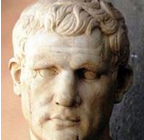This piece was reprinted by OpEd News with permission or license. It may not be reproduced in any form without permission or license from the source.
Reprinted from downwithtyranny.blogspot.com

Reagan Thatcher; The saints of neoliberalism. Bill Clinton just put a Democratic Party face on it
(Image by (From Wikimedia) White House Photographic Office, Author: White House Photographic Office) Details Source DMCA
For years I've been using the term "neoliberalism" (or sometimes neo-liberalism*) and I'm always uncomfortable, since it sounds so academic. So I usually add one-phrase definitions and move on. For example, this from a recent piece on Puerto Rico:
If neoliberalism is the belief that the proper role of government is to enrich the rich -- in Democratic circles they call it "wealth creation" to hide the recipients; Republicans are much more blatant -- then the "shock doctrine" is its action plan.
That's sounds pretty blunt, but it's a true statement, even among academics. See this great interview (start at about 6:15) with Professor Philip Miroski of the University of Notre Dame on how modern neoliberals have come to see the role of government in society. It's weedy but excellent.
I want to offer our readers a better description of neoliberalism though, yet not get into too many weeds. So consider these exceprts from a longer Guardian essay by the British writer George Monbiot. (My thanks to Naked Capitalism commenter nonclassical for the link and the idea for this piece.)
Neoliberalism -- The Invisible Water the West Is Swimming In
We'll start with Monbiot's brief intro, just to set the scope of the problem:
Imagine if the people of the Soviet Union had never heard of communism. The ideology that dominates our lives has, for most of us, no name. Mention it in conversation and you'll be rewarded with a shrug. Even if your listeners have heard the term before, they will struggle to define it. Neoliberalism: do you know what it is?
Ask people to define "neoliberalism," even if they've heard of it, and almost no one can. Yet the comparison of our governing ideology to that of the Soviet Union's is a good one -- like "communism," or the Soviet Union's version of it, neoliberalism defines and controls almost everything our government does, no matter which party is in office.
The Birth of Neoliberalism
What is neoliberalism and where did it come from? Monbiot writes:
The term neoliberalism was coined at a meeting in Paris in 1938. Among the delegates were two men who came to define the ideology, Ludwig von Mises and Friedrich Hayek. Both exiles from Austria, they saw social democracy, exemplified by Franklin Roosevelt's New Deal and the gradual development of Britain's welfare state, as manifestations of a collectivism that occupied the same spectrum as nazism and communism.
Neoliberalism is an explicit reaction to Franklin Roosevelt and the welfare state, which by a quirk of history was called "liberalism" at the time, even though, in the nineteenth century, "liberalism" had roughly the same meaning that "neoliberalism" has today. In other words, "FDR liberalism" is in many ways the opposite of classical "liberalism," which meant "liberty (freedom) from government," and a quirk of history has confused these terms.
Back to Monbiot and Hayek:
In The Road to Serfdom, published in 1944, Hayek argued that government planning, by crushing individualism, would lead inexorably to totalitarian control. Like Mises's book Bureaucracy, The Road to Serfdom was widely read. It came to the attention of some very wealthy people, who saw in the philosophy an opportunity to free themselves from regulation and tax. When, in 1947, Hayek founded the first organisation that would spread the doctrine of neoliberalism -- the Mont Pelerin Society -- it was supported financially by millionaires and their foundations.
(Note: You can view every article as one long page if you sign up as an Advocate Member, or higher).





